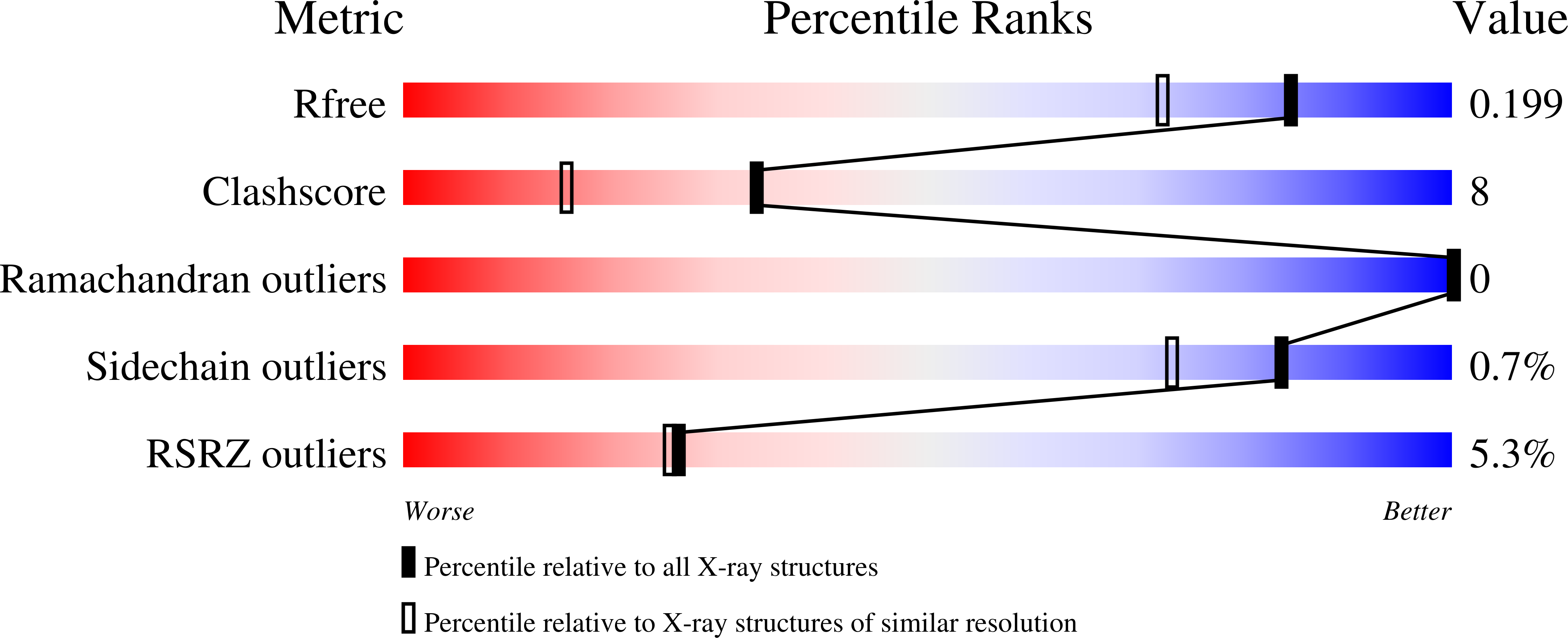Co-evolution of a broadly neutralizing HIV-1 antibody and founder virus.
Liao, H.X., Lynch, R., Zhou, T., Gao, F., Alam, S.M., Boyd, S.D., Fire, A.Z., Roskin, K.M., Schramm, C.A., Zhang, Z., Zhu, J., Shapiro, L., Mullikin, J.C., Gnanakaran, S., Hraber, P., Wiehe, K., Kelsoe, G., Yang, G., Xia, S.M., Montefiori, D.C., Parks, R., Lloyd, K.E., Scearce, R.M., Soderberg, K.A., Cohen, M., Kamanga, G., Louder, M.K., Tran, L.M., Chen, Y., Cai, F., Chen, S., Moquin, S., Du, X., Joyce, M.G., Srivatsan, S., Zhang, B., Zheng, A., Shaw, G.M., Hahn, B.H., Kepler, T.B., Korber, B.T., Kwong, P.D., Mascola, J.R., Haynes, B.F.(2013) Nature 496: 469-476
- PubMed: 23552890
- DOI: https://doi.org/10.1038/nature12053
- Primary Citation of Related Structures:
4JAM, 4JAN - PubMed Abstract:
Current human immunodeficiency virus-1 (HIV-1) vaccines elicit strain-specific neutralizing antibodies. However, cross-reactive neutralizing antibodies arise in approximately 20% of HIV-1-infected individuals, and details of their generation could provide a blueprint for effective vaccination. Here we report the isolation, evolution and structure of a broadly neutralizing antibody from an African donor followed from the time of infection. The mature antibody, CH103, neutralized approximately 55% of HIV-1 isolates, and its co-crystal structure with the HIV-1 envelope protein gp120 revealed a new loop-based mechanism of CD4-binding-site recognition. Virus and antibody gene sequencing revealed concomitant virus evolution and antibody maturation. Notably, the unmutated common ancestor of the CH103 lineage avidly bound the transmitted/founder HIV-1 envelope glycoprotein, and evolution of antibody neutralization breadth was preceded by extensive viral diversification in and near the CH103 epitope. These data determine the viral and antibody evolution leading to induction of a lineage of HIV-1 broadly neutralizing antibodies, and provide insights into strategies to elicit similar antibodies by vaccination.
Organizational Affiliation:
Duke University Human Vaccine Institute, Departments of Medicine and Immunology, Duke University School of Medicine, Durham, North Carolina 27710, USA. [email protected]


















